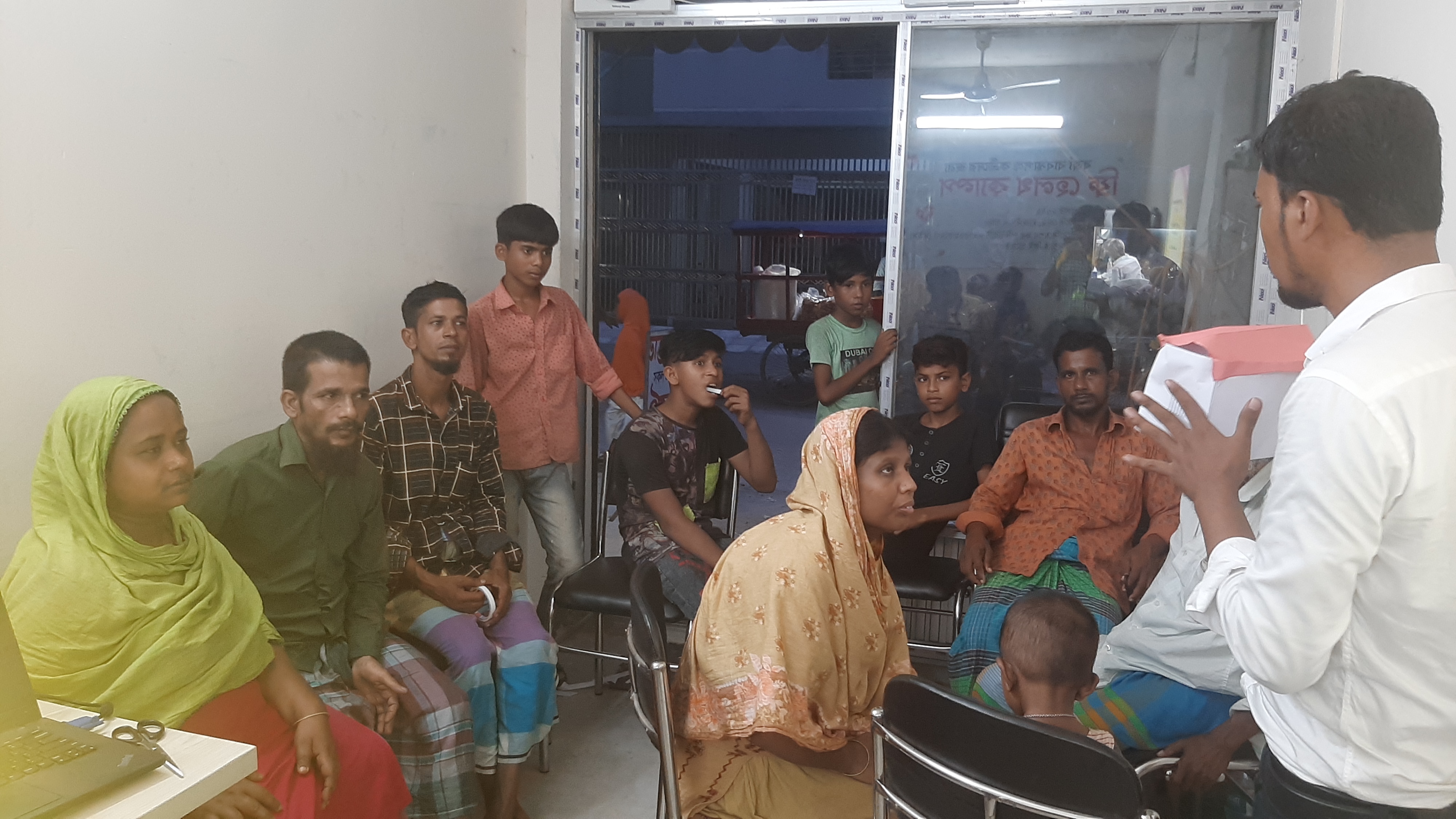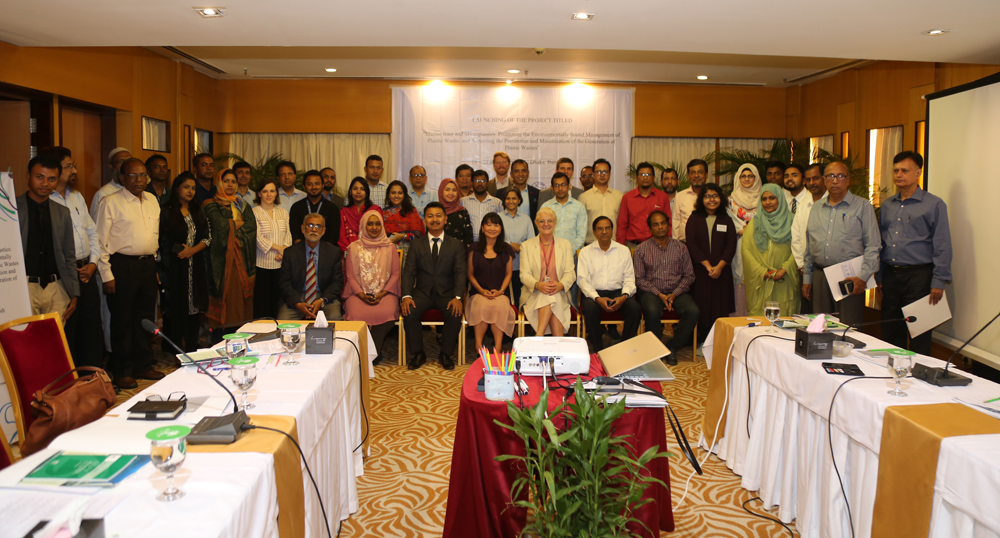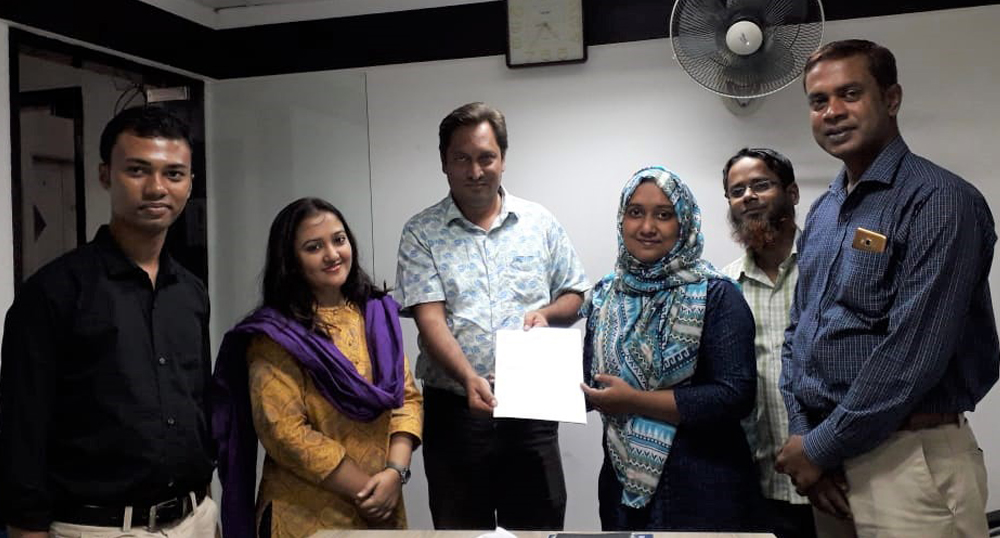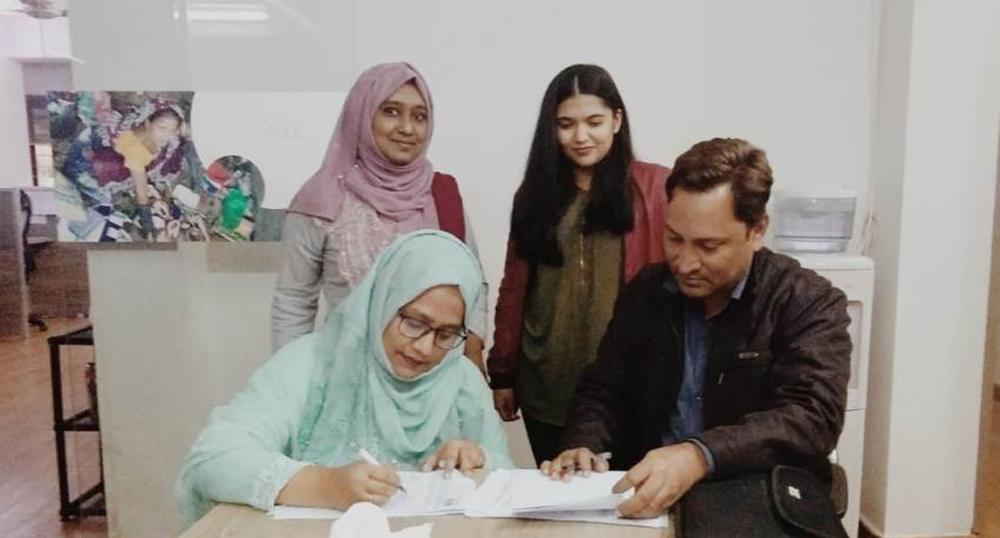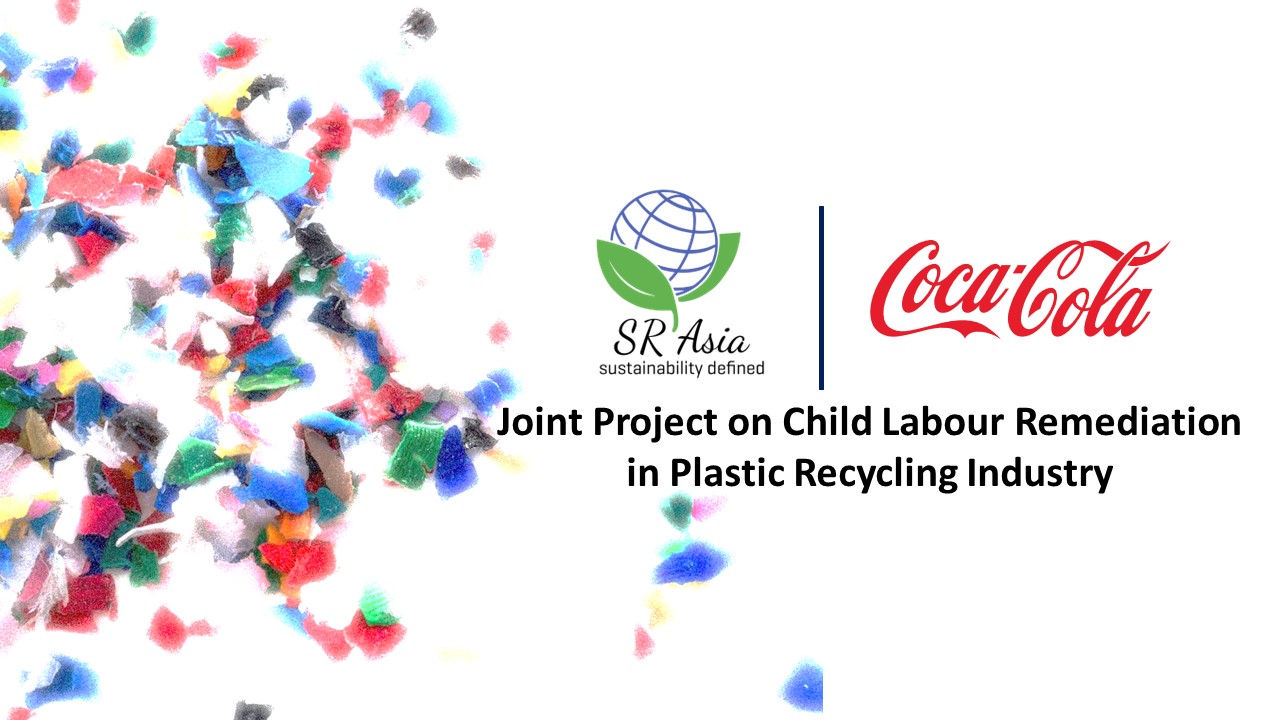IMPACT-GE: Enabling Sustainability, Empowering Lives
As one of the leading global organizations, The Coca-Cola Company possesses a profounds awareness of its responsibility towards the communities where it operates. To support the communities, the company launched numerous initiatives worldwide, and one of such flagship initiatives is creating a World Without Waste. The initiative resonates with the core principles of circular economy. With the commitment to the global vision of The Coca-Cola Foundation, philanthropic arm of the company and SR Asia Bangladesh jointly launched a three years project - “Integrated Management of Plastic Assortment and Contribution Towards Green Economy” (IMPACT-GE) from 2022 - 2025.
The need for plastic waste management
Dhaka, capital of Bangladesh, home to 10.2 million residents, is one of the most rapid developing cities in the world. The megacity is the nineth largest and seventh most densely populated cities in the world. Due to this dense population, the consumer base of the city is significantly higher than any other city in the country. According to the report “Towards a Multisectoral Action Plan for Sustainable Plastic Management in Bangladesh” by the World Bank, country’s annual per capita plastic consumption in urban areas exhibited a threefold increase from three kgs in 2005 to nine kgs in 2020. The report further mentioned that a circular economy will help to create new value chains, green skills, employment, and innovative products while addressing social and environmental challenges.
Our Initiative
The project IMPACT-GE focused to strengthen the waste management system and improve the livelihoods of waste workers in Dhaka South and North City Corporation, which includes prominent areas such as Mohammadpur, Adabor, Dhanmondi, Sabujbagh, Khilgaon, Shampur, Mirpur, Uttara, Notunbazar, Ghater Char and Jatrabari among others.
Objective:
Developing an efficient waste management system and reducing local air, water and land pollution are the objectives of the project. The partnership is also aim to improve the lives of individuals, such as waste management workers through green jobs and inclusive economic growth.
Environment Impact:
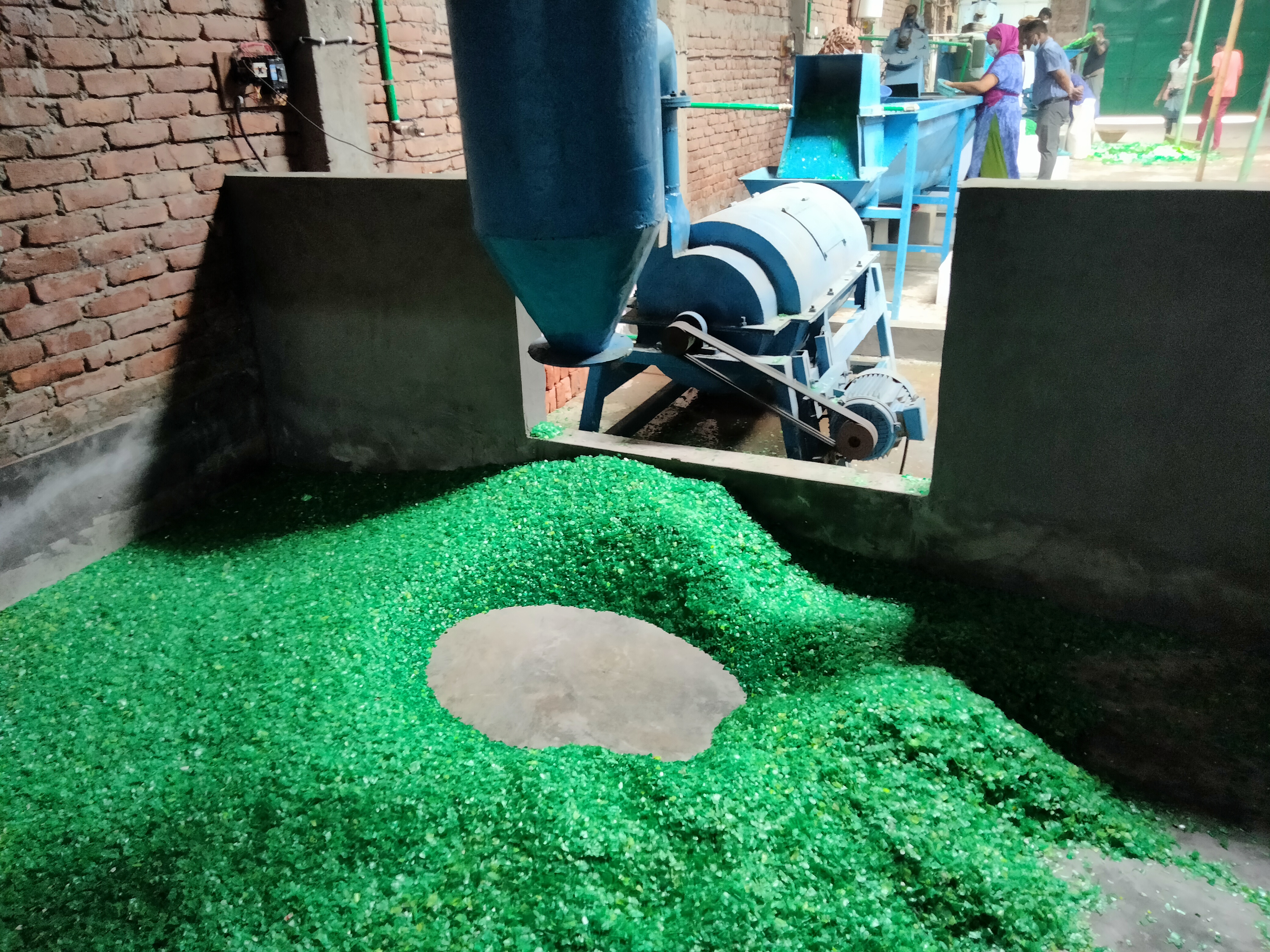
The recycling plant established with a capacity to process 4 tons of plastic on a regular basis and over the time the capacity was increased to 10 tons per day. During the one-year pilot phase, approximately 1,357 tonnes of PET plastic were collected and recycled through collective effort. 1.37 million individuals' lives were improved as a result of this collection. 4764 square feet of shed area has been established in Shampur industrial area to recycle PET.
Community Impact:
During the social mapping study conducted in 2022 as a part of IMPACT-GE Project, the study identified that the vulnerabilities of waste pickers in the city area are the consequences of their poor education and lack of skills, lower earnings, miserable living and working conditions, lower social status, and no access to social services. In addition, they encounter chronic injuries and occupational health risks, but they are not aware of this. As a result, they are unable maintain a standard of living by their own efforts.
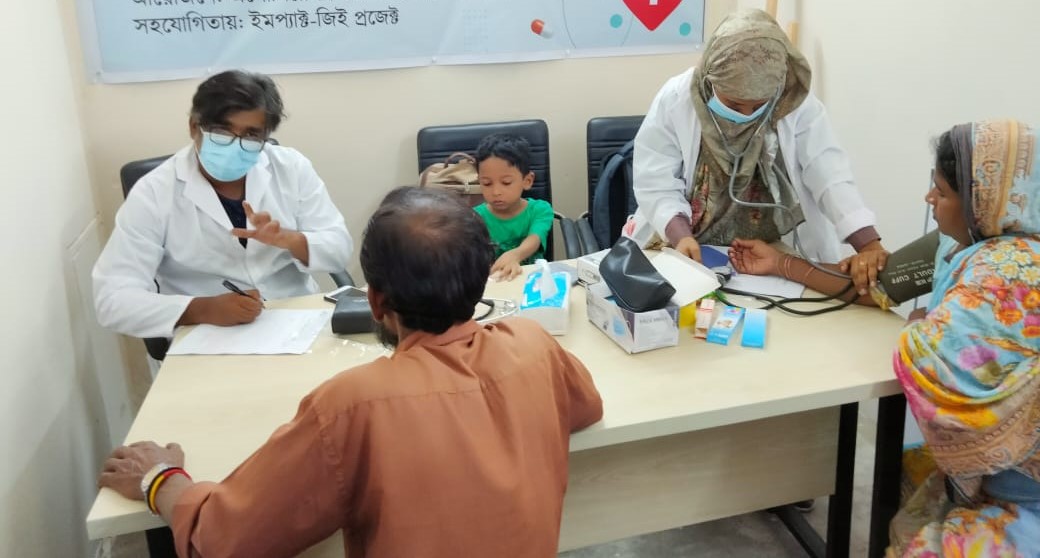
Through the initiative, 400 waste workers were organized in 01 Cooperative benefitted by this Inclusive business model and increased resource efficiency through the project’s intervention. The waste workers received training on OHS, Entrepreneurship Development and on-job training.
In addition to the 400 direct beneficiaries, this initiative indirectly benefited approximately 1200 family members of the waste workers.
